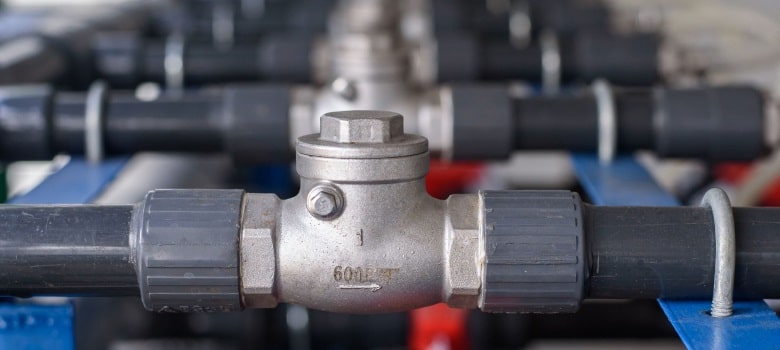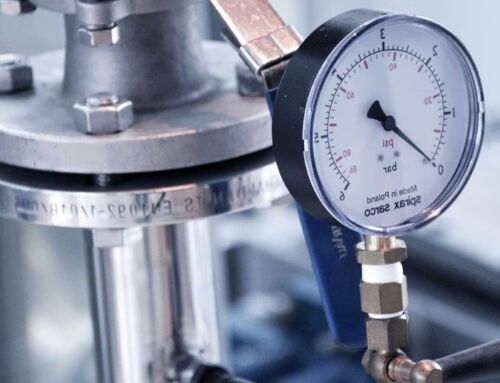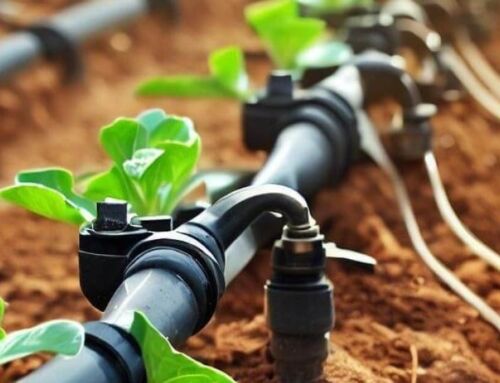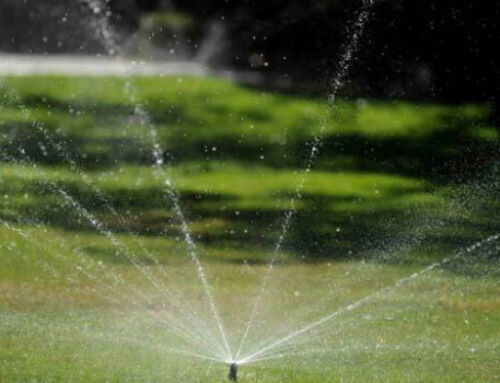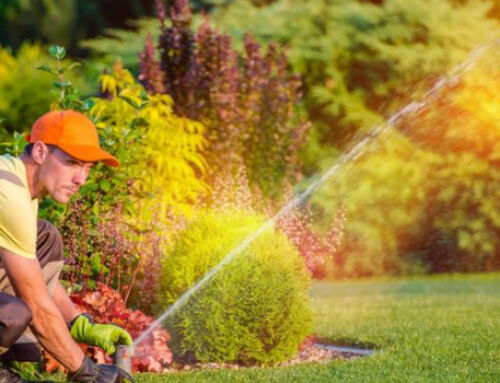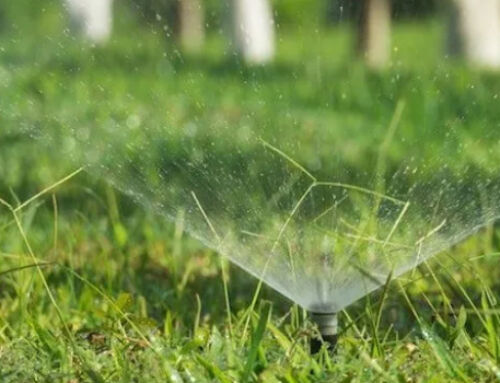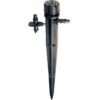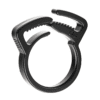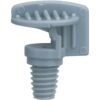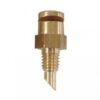Valves stop the flow of fluid in one direction and allow free-flow in the opposing direction – creating a crucial system for irrigation systems.
When it comes to your irrigation system, you might have come across two different valve types:
- Check valve
- Non-return valve
These unassuming components play a crucial role in maintaining the integrity of your plumbing or irrigation system.
In this article, we’ll delve deeper into the differences between check valves vs. non-return valves, their applications, and how they contribute to the reliability and safety of your system.
Read on to learn more.
Overview of Check Valves and Non-Return Valves
Check Valve
Also known as a one-way valve, it is a simple yet indispensable component in plumbing systems. It’s designed to allow the flow of fluids in one direction only while preventing reverse flow.
Imagine it as a gatekeeper for your plumbing, ensuring that water or other fluids move in the intended direction and never backtrack.
Whether you’re dealing with wastewater, sewage, or irrigation and garden design, it plays a crucial role in maintaining the flow’s integrity.
Non-Return Valve
A non-return valve is dedicated solely to preventing backflow. It operates similarly to the check valve, but its primary purpose is to stop any reverse flow in the plumbing system.
Non-return valves are essential to safeguard against potential issues like contamination and flooding.
Both help mitigate risks by ensuring that water and other fluids flow in the right direction, preventing damage and protecting the environment.
Check Valve vs. Non-Return Valve – Weighing the Pros and Cons
Check Valve
Pros:
- Versatile Flow Control: They are suitable for various fluids, making them versatile for a wide range of applications.
- Low Maintenance: These valves are relatively low maintenance, requiring minimal attention once installed.
- Prevents Backflow: They effectively prevent reverse flow, reducing the risk of contamination and system damage.
- Space-Efficient: They are compact and don’t take up much space in your plumbing system.
Cons:
- Limited Opening Pressure: They may have a minimum opening pressure requirement, which could restrict flow in low-pressure situations.
- Noise: Some variations can produce noise when closing abruptly, which might be a concern in quieter environments.
- Potential for Water Hammer: In high-pressure systems, the sudden closing can lead to a water hammer, causing damage to pipes.
Non-Return Valve
Pros:
- Dedicated Backflow Prevention: Non-return valves excel at preventing backflow, ensuring water and contaminants never return to your system.
- Reliable Safety Measures: They offer a reliable safety net, especially in areas prone to flooding or contamination risks.
- Silent Operation: Non-return valves operate silently, making them suitable for noise-sensitive environments.
- Customisable: These valves can be tailored to specific applications, providing flexibility in design.
Cons:
- Limited to Backflow Prevention: Non-return valves have a single-purpose focus, which may not be ideal for all plumbing applications.
- Slightly More Complex: Installation and maintenance of non-return valves can be slightly more complex.
- Potential for Clogging: In situations where debris is present, non-return valves can be prone to clogging, requiring periodic maintenance.
Check Valve vs. Non-Return Valve – A Comprehensive Comparison
Efficiency
- One-Way Valve: They offer efficient flow control, allowing for smooth fluid movement in one direction. This is particularly useful in situations where steady flow is critical.
- Non-Return Valve: They prioritise backflow prevention, ensuring efficiency by safeguarding your plumbing system from contamination and damage.
Cost
- One-Way Valve: They are generally more cost-effective upfront, making them a budget-friendly choice for many plumbing projects.
- Non-Return Valve: They can be slightly more expensive due to their specialised design and focus on backflow prevention. However, the added cost may provide long-term benefits.
Durability and Lifespan
- One-Way Valve: They are known for their durability and long lifespan, thanks to their simple and robust construction.
- Non-Return Valve: They are also built to last, ensuring that they maintain their reliability over an extended period, especially in applications where backflow prevention is crucial.
Aesthetics
- One-Way Valve: They are typically compact and discreet, fitting seamlessly into your plumbing system without drawing attention.
- Non-Return Valve: They can vary in design but are often chosen for their functionality rather than aesthetics. They may be less visually appealing in some cases.
Environmental Impact
- One-Way Valve: They are generally considered environmentally friendly, as they do not contribute to backflow or contamination issues that could harm local ecosystems.
- Non-Return Valve: They also have a positive environmental impact by preventing the release of contaminants into the environment, which is especially vital in ecologically sensitive areas of Melbourne.
Maintenance
- One-Way Valve: They require minimal maintenance, making them a hassle-free option for those looking to reduce upkeep.
- Non-Return Valve: They may require periodic maintenance to ensure they continue to function effectively in preventing backflow.
Whether you prioritise efficiency, cost-effectiveness, durability, aesthetics, environmental impact, or ease of maintenance, the choice between a check valve vs non-return valve will ultimately depend on your unique project.
Selecting the Right Valve for Your Needs
When to Choose a Check Valve:
- Residential Plumbing: For typical residential plumbing systems in Melbourne, where preventing backflow is not a primary concern, check valves are an excellent choice. They provide efficient flow control while keeping maintenance needs low.
- Low-Budget Projects: If you’re working on a tight budget, one-way valves are often the more cost-effective option upfront. They can still offer reliable performance for everyday plumbing needs.
- Industrial Applications: In some industrial settings where fluid flow direction control is crucial, check valves are preferred. Their versatility makes them suitable for a range of applications.
When to Choose a Non-Return Valve:
- Environmental Sensitivity: In ecologically sensitive areas or locations where contamination risks must be minimised, non-return valves are the better choice. Their focus on preventing backflow aligns with environmental protection goals.
- High-Stakes Plumbing: For critical plumbing installations where the cost of potential contamination or backflow damage is high, non-return valves provide superior protection and peace of mind.
- Long-Term Reliability: If you’re looking for a valve with an extended warranty and a reputation for durability, non-return valves are the go-to option. Their longer coverage period reflects their reliability over time.
Making the Right Choice for Your Irrigation System
Let’s recap the key differences and pros/cons of these two valve types to help you make an informed decision.
Check Valve:
- Pros:
-
-
- Versatile flow control.
- Low maintenance.
- Prevents backflow.
- Space-efficient.
-
- Cons:
-
- Limited opening pressure.
- Potential for noise.
- Possible water hammer.
Non-Return Valve:
- Pros:
-
-
- Dedicated backflow prevention.
- Reliable safety measures.
- Silent operation.
- Customisable for specific applications.
- Excellent environmental impact.
-
- Cons:
-
- Higher upfront cost.
- May require periodic maintenance.
- Less focus on aesthetics.
Ultimately, the decision between check valves vs non-return valves hinges on your unique plumbing needs, budget, and location.
By considering the factors that matter most to you, you can confidently select the valve that aligns perfectly with your requirements
Explore our range of valve options:
Ready to Make the Right Valve Choice? Contact Malvern Irrigation Supplies Today!
Choosing the perfect valve for your plumbing project is a significant decision, and we hope this article has provided you with valuable insights into the world of check valves vs non-return valves.
If you’re still uncertain about which valve type suits your specific needs, or if you’re looking for a quote tailored to your project, don’t hesitate to reach out to the experts at Malvern Irrigation Supplies.
Our team of knowledgeable professionals is here to offer you personalised advice and assistance, ensuring that your plumbing system in Melbourne performs at its best.
Contact us today, and let’s make sure your plumbing project in Melbourne flows seamlessly, with the right valve for the job!

